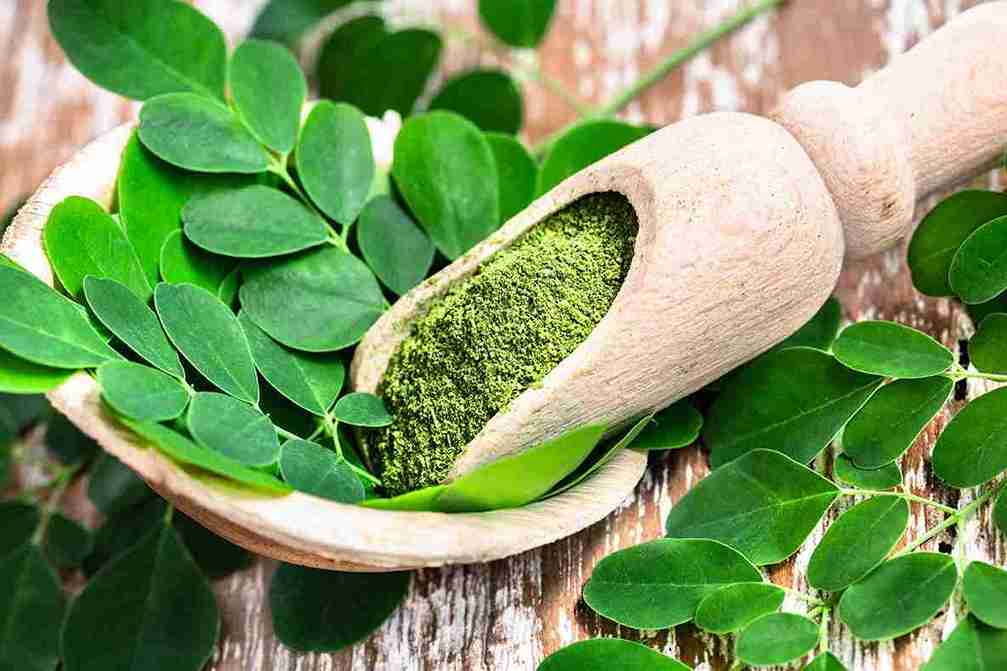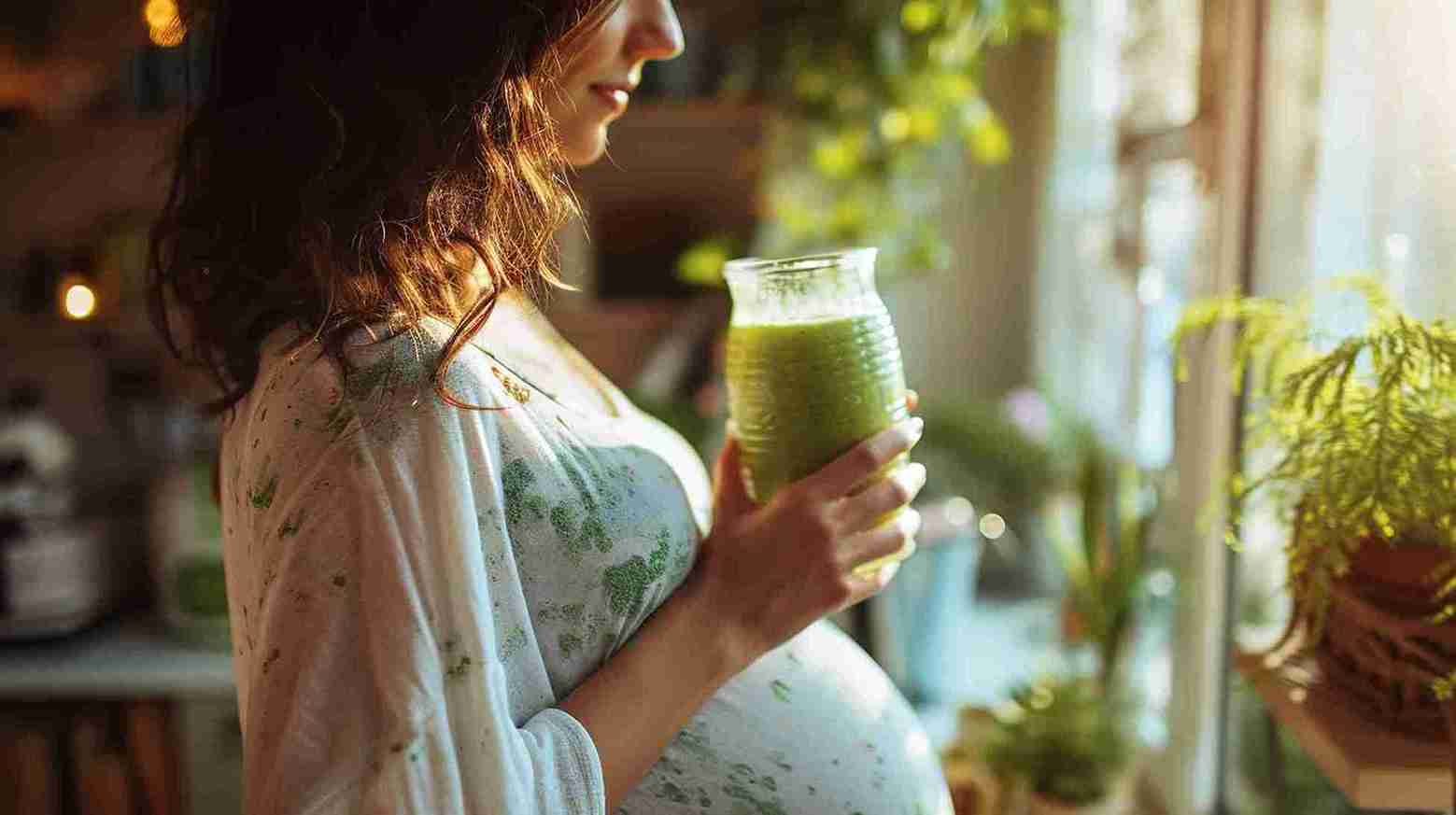
Moringa, also referred to as drumstick, is a common household item in India and traditional Ayurvedic medicine. This green leafy vegetable, particularly leaves and pods, is packed with nutrition and is currently being recognised globally for its benefits in pregnancy. With the body needing extra nutrients, many expectant mothers are embracing natural choices, and moringa in pregnancy is often preferred for its potential to nourish both mother and baby. Let’s walk you through the complete health benefits of consuming moringa in pregnancy through this short and simple guide.

Moringa leaves are very nutrient-rich and a single serving provides:
Moringa is also rich in anti-inflammatory and antioxidant nutrients such as quercetin and chlorogenic acid. These nutrients have been proven to nourish both mother and baby, especially in alleviating oxidative stress and inflammation, which are typical in pregnancy.
Adding moringa to your prenatal regimen can provide various benefits. Some of the most important advantages of moringa during pregnancy are as follows:
1. Prevents Anaemia
Pregnant women are more prone to iron-deficiency anaemia. Moringa contains more plant-based iron and vitamin C, which support enhanced iron absorption. The daily intake can contribute to the retention of healthy haemoglobin and prevent fatigue.
2. Supports Immunity
Moringa, with vitamin C and other antioxidants, stimulates immunity and assists the body in combating usual infections and colds during pregnancy.
3. Supports Fetal Bone Formation
The calcium content is high enough to aid the development of robust bones and teeth for the developing fetus. It further helps in keeping the mother's bone health stable since there is increased demand for calcium.
4. Aids Digestion
Moringa fibre helps in digestion and prevents constipation, something very common in pregnant women.
5. Eases Inflammation and Stress
The anti-inflammatory properties present in moringa might reduce pregnancy discomfort and help in mood balance.
6. Fetal Growth and Weight Support
The folate and protein in moringa assist in healthy fetal development, organ formation, and possibly add to the birth weight in the optimal range.

Although moringa is to be taken during the whole pregnancy, its effects can differ per trimester:
In the second trimester, the nutritional demands of both mother and fetus increase. Adding drumstick leaves during 2nd trimester could help address higher needs for iron, calcium and folate. These vitamins are responsible for energy levels, red blood cell counts and the development of the baby's organs and skeletal system.
The third trimester is also essential for fetal development and completion. Drumstick leaves during the 3rd trimester of pregnancy may be helpful for maintaining strength, assisting with proper birth weight and contributing toward calcium and iron needs. Such nutrients are particularly significant when the baby's bones become hard and blood volume is at its peak.
Moderation is the watchword when taking any herb or supplement while pregnant. So, how much moringa can a pregnant woman take safely?
It is always best to get medical advice before taking moringa supplements and especially before taking in large concentrated doses.
Moringa is versatile and can be included in your diet in many ways.
Cooked varieties are preferred since they're easier on the stomach and minimise the chances of any dangerous compounds contained within raw pieces.

Although moringa is generally safe in food quantities, there are some precautions to be taken:
When it comes to prenatal care, Cloudnine Hospitals is leading the way in evidence-based practice, skilled medical staff and individualised care plans. Its dedication to holistic health means that nutritional advice, emotional support and clinical expertise walk hand-in-hand. With an emphasis on safety and personalised needs, Cloudnine fosters an atmosphere where women feel empowered and supported with each phase of pregnancy.
Moringa or drumstick is an age-old superfood that is of immense benefit when utilised judiciously during pregnancy. Right from averting anaemia to nourishing fetal growth and the mother's health, it is an effective, nutrient-dense alternative. Whether you are in your second or third trimester, it can be easily included in pregnancy through your regular diet to fulfil the enhanced nutritional requirements of you as well as your baby.
Still, as with all herbs and supplements, moringa needs to be taken responsibly. Always consult your physician or a licensed nutritionist before adding it to your prenatal diet, particularly in the form of a powder or capsule. Used properly, this unsung green superfood really can boost your prenatal nutrition experience.


Yes, in cooked moderate quantities, such as fresh leaves or pods, moringa is safe. Do not consume seeds, roots and high-dose supplements without a doctor's prescription.

Drumstick is neutral to slightly heating in Ayurveda, but it's okay in moderate dietary proportions and doesn't usually create heat problems when cooked.

Moringa has trace levels of vitamin D, yet it's not substantial. Its potency is in iron, calcium, vitamin C and antioxidants.

It can be taken at lunch or dinner. Taking it with meals aids in nutrient absorption and digestion.